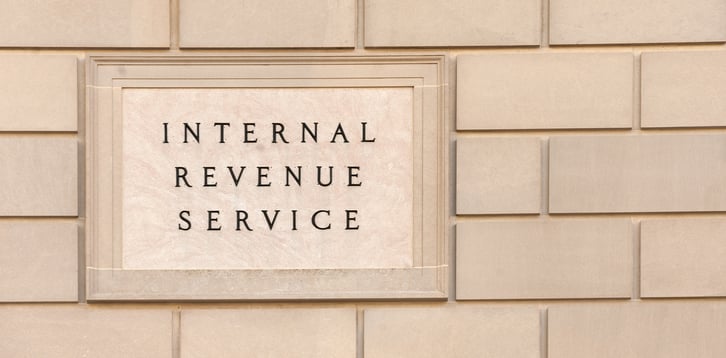
Written by Jeremiah W. Doyle IV, JD, LLM
Internal Revenue Code (I.R.C.) section 6166 allows an executor to defer the payment of the federal estate tax attributable to the interest in a closely held business. The deferred payments may be extended over a period of up to fourteen years and nine months following the death of the business owner. With an estate tax exemption of $12.06 million in 2022, many estates can pass free of federal estate tax, making a section 6166 election unnecessary for the value of a business interest included in the gross estate. However, with the estate, gift, and generation skipping tax exemption scheduled to be reduced to $5 million (indexed for inflation) beginning January 1, 2026, a section 6166 election may become valuable for more estates holding an interest in a closely held business. Thus, it is probably time to dust off a copy of section 6166 and review its complex and somewhat ambiguous provisions.
General Requirements
Section 6166 deferral is available if the estate meets the following requirements:
- The decedent must have been, at death, a citizen or resident of the United States
- The estate holds an interest in a closely held business
- The interest constitutes more than 35 percent of the adjusted gross estate (AGE) and certain other requirements are met
- The executor elects, on a timely filed estate tax return, to pay a portion of the estate tax and generation skipping transfer tax attributable to the closely held business resulting from direct skips
See Jeremiah Doyle speak about grantor retained annuity trusts at the Advanced Estate Planning Summit on March 8, 2023.
Required 35 Percent of Adjusted Gross Estate
The value of the closely held business interest included in the decedent’s gross estate must exceed 35 percent of the decedent’s AGE. The determination of whether the 35 percent requirement is met is made immediately before the decedent’s death. The value of the estate is normally the date-of-death value unless alternate valuation under section 2032 or special use valuation under section 2032A is elected, in which case those values are used.
The portion of the estate tax attributable to the closely held business is determined by the ratio by which the value of the closely held business interest bears to the adjusted gross estate. The adjusted gross estate is defined as the gross estate less deductions for expenses, debts, taxes, and losses allowable by sections 2053 and 2054. For purposes of the above calculation, the gross estate must be reduced by all allowable expenses and losses, even if the estate elects to take those items on the fiduciary income tax return rather than the estate tax return.
Example: If the value of the gross estate is $20 million and the expenses, debts, and losses are $4 million, the value of the business interest must exceed $5.6 million, which is $20 million − $4 million ✕ 35 percent.
The formula for determining the maximum amount of estate tax eligible for deferral is the [(value of closely held business) ÷ (AGE)] ✕ (federal estate tax after credits).
The executor may elect to completely defer the tax and pay five annual installments of interest only, beginning one year and nine months after the date of the business owner’s death. The first principal installment of tax is due on or before five years after the due date of the estate tax return (not counting extensions), and the balance of the tax together with accrued interest is payable in nine additional annual installments.
Additional Details on Installment Payments
The interest payments made under a section 6166 election are not deductible for income or estate tax purposes. Instead, a portion of the deferred tax bears interest at a favorable 2 percent rate, while the balance of the deferred tax bears interest at 45 percent of the regular interest rate on a deficiency. Thus, beginning nine months after the date of death, interest will accrue at the rate of 2 percent on the federal estate tax attributable to the first $1 million of the value of the closely held business in excess of the applicable exclusion amount in the year of death, as indexed for inflation. Under section 6601(j)(3), there is an inflation factor of 164.24 percent for deaths occurring in 2022, so the adjusted first $1 million of taxable business value (rounded) is $1,640,000 for deaths in 2022. That translates to a 2 percent rate on $656,000 ($1,640,000 ✕ 40 percent). The interest payable on the balance of the deferred federal estate tax is equal to 45 percent of the section 6601(a) rate of interest otherwise charged against underpayments of tax.
The proportion of each installment that is payable at the 2 percent interest rate is the same proportion that the amount of federal estate tax eligible for the 2 percent rate bears to the total amount of federal estate tax payable in installments.
Percentage Requirements
In computing the value of the gross estate for purposes of the 35 percent test, all gifts made within three years of death must be included even though such gifts are not otherwise included for estate tax purposes.
If the decedent owns more than one business, the value of each business in which the decedent owns at least a 20 percent interest may be aggregated to meet the 35 percent test.
Example: Decedent’s gross estate is $10 million. Expenses, debts, and losses total $2 million. The decedent owned 100 percent of one closely held business worth $2 million and 10 percent of another closely held business worth $20 million. The estate cannot qualify under the 35 percent rule and will not qualify for the election because only the first business valued at $2 million can be counted. The decedent owns 10 percent of the $20 million business, not the minimum 20 percent required to be counted to meet the 35 percent of AGE test.
Must Be a Closely Held Business
The definition of a closely held business includes
- a sole proprietor;
- a partner in partnership with no more than forty-five partners, or where at least 20 percent or more of the total capital interest in the partnership is included in the decedent’s gross estate; or
- a shareholder in a corporation with no more than forty-five shareholders, or where 20 percent or more in value of the voting stock of the corporation is included in the decedent’s gross estate.
Must Be a Closely Held Business: Attribution Rules
Section 6166 has attribution rules to make it easier for estates to qualify . . .
Read the full article by subscribing to the WealthCounsel Quarterly—the free legal magazine for estate planners and business lawyers.





